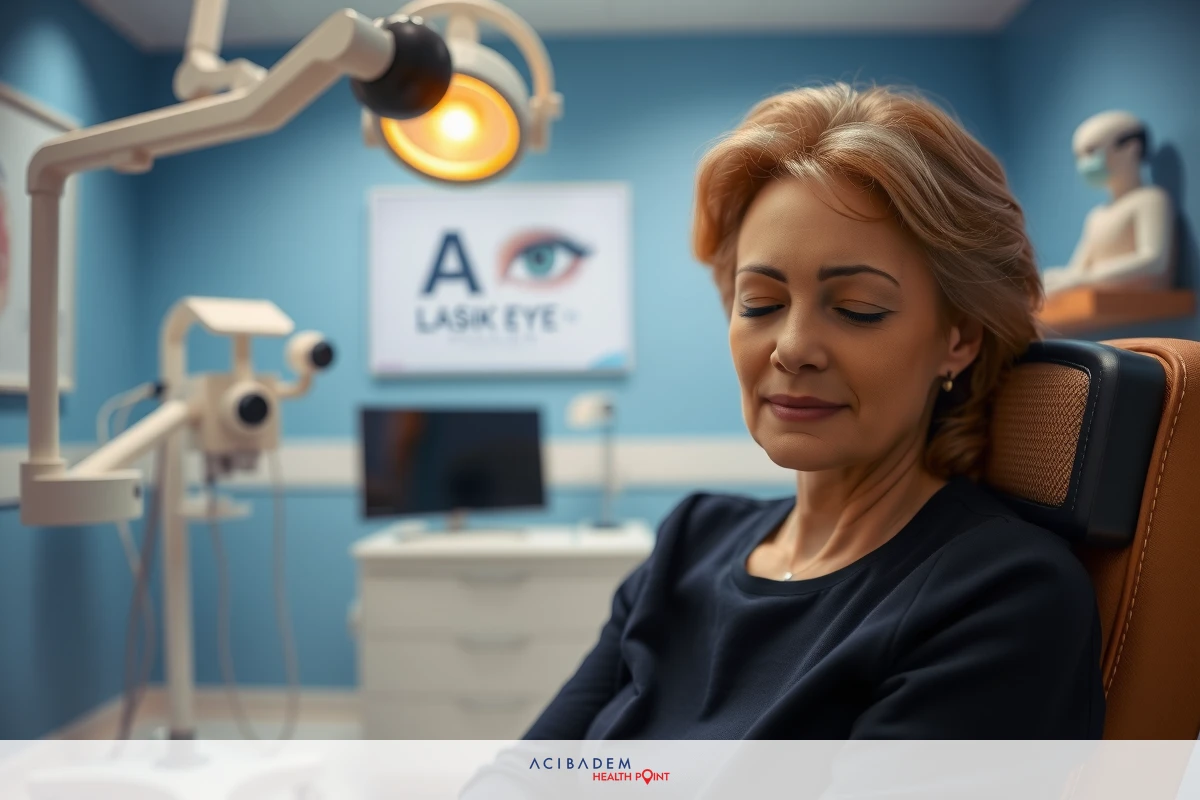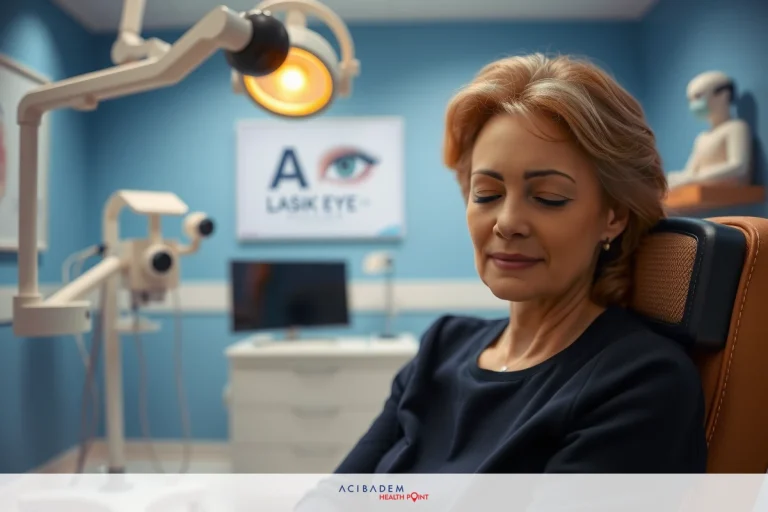When Can You Get LASIK Eye Surgery Age
When Can You Get LASIK Eye Surgery Age LASIK eye surgery, an innovative technological advancement in the field of vision correction, comes with its unique set of criteria. One such criterion revolves around age: Is there an optimal period in one’s lifetime to undergo this treatment? It may seem surprising that even medical marvels like LASIK have restrictions tied to how old you are, but it is indeed true.
The eligibility for this corrective operation doesn’t solely rely on your current vision impairments or overall health condition; age requirements play a crucial role too. Understanding these guidelines could be vital if you’re contemplating undergoing LASIK. Your candidacy for this form of treatment requires careful evaluation by professionals who take into consideration multiple factors beyond just your age.
Age Requirements for LASIK Eye Surgery
LASIK eye surgery is an effective procedure designed to correct a variety of vision impairments. However, as with many surgical procedures, it comes with specific age requirements. The question often arises: What is the ideal age for someone to be considered for this operation?
The minimum age limit set by most professionals in the field is usually around 18 years old. At this stage in life, a person’s vision has typically stabilized enough that corrective surgery can have long-lasting effects. Before reaching this threshold of adulthood, our eyes are still subject to change and growth which could negate or complicate the results of LASIK.
On the other end of the spectrum, there isn’t generally a maximum age limit per se; however, certain factors related to aging may affect eligibility and candidacy for LASIK eye surgery. These factors include conditions like cataracts or degenerative changes in your cornea – issues more common as we grow older – can make you less suitable for undergoing this particular procedure.
It’s essential to consider these age restrictions when contemplating LASIK eye surgery. While it might seem inconvenient or even unfair that such limitations exist — especially if you’re eager for corrected vision earlier on — they play an integral role in ensuring patient safety and optimal treatment outcome.
Keep in mind that only trained medical professionals should determine your suitability based on these guidelines along with other relevant factors such as overall health condition and specific visual needs.
Eligibility
Diving into the realm of eligibility beyond age requirements, it’s crucial to understand that not everyone is a suitable candidate for LASIK eye surgery. The process moves far beyond just verifying an individual’s age bracket; other factors also contribute significantly to determining whether or not one qualifies for this surgical procedure.
First and foremost, you need a stable prescription. That means your vision should remain unchanged for at least two years before considering LASIK. There are reasons behind this particular requirement – if your eyesight continues to deteriorate after the treatment, you can end up back where you started with impaired vision.
Next comes the health of your cornea. A thick and healthy cornea is vital as the laser used in LASIK removes microscopic amounts of tissue from it during the procedure. If your cornea is too thin or irregularly shaped (a condition known as keratoconus), then undergoing LASIK could lead to complications.
Eye conditions aside, overall good health is another significant factor contributing towards eligibility for this operation. Certain medical conditions like diabetes, auto-immune diseases, or medications which affect wound healing may impede the success rate of recovery post-surgery.

Moreover, dry eyes can be exacerbated by LASIK procedures — therefore potential candidates mustn’t suffer excessively from dry eye syndrome beforehand. Pregnancy also plays a role here because hormonal changes can cause fluctuations in vision which might interfere with surgical outcomes.
In conclusion, while age requirements are indeed a factor when considering candidacy for LASIKe eye surgery; they’re only one piece of a larger puzzle that surgeons consider before green-lighting patients for this life-changing procedure.
Candidacy for LASIK Eye Surgery
To further delve into the world of LASIK eye surgery, it’s essential to understand what makes an individual a good candidate. It goes beyond just meeting age and eligibility requirements – there are several other factors that can influence whether or not you’re considered a suitable candidate for this procedure.
Firstly, your vision prescription plays a significant role in determining candidacy. People with moderate nearsightedness tend to have the most successful outcomes. However, those with high levels of myopia (nearsightedness), hypermetropia (farsightedness), or astigmatism may still be candidates but could require additional considerations by their surgeon.
In addition to your specific vision impairment type and degree, lifestyle factors also come into play when assessing candidacy for LASIK surgery. Certain professions or hobbies which increase the risk of eye injuries might make surgeons hesitant about performing this operation due to potential future complications.
The shape and size of your pupils also hold considerable weight in evaluating suitability as larger pupils might increase risks related to night vision problems post-surgery such as halos, glares, or starbursts around lights during low light conditions.
Your emotional readiness is another aspect taken into account before approving you for LASIK eye surgery. The reality is that this procedure may induce anxiety in some individuals due its invasive nature coupled with common fears associated with surgical operations on sensitive body parts like eyes.
Having realistic expectations about the outcome is critical too; while many patients experience significantly improved vision following treatment — perfection isn’t always guaranteed. Be prepared that minor imperfections might persist even after undergoing LASIK— perfect 20/20 vision isn’t always achievable through this surgery alone.
Only trained medical professionals should determine whether you meet all necessary criteria and hence qualify as a fit candidate based on these standards alongside any other relevant parameters they deem important.
Frequently Asked Questions
At what age can I become eligible for LASIK eye surgery?
Generally, you need to be at least 18 years old, as this is the age where your vision usually stabilizes. However, there isn't a strict maximum age limit; instead, it depends on individual health conditions and overall eye health.
Are there any specific medical conditions that might make me ineligible for LASIK?
Yes. Conditions like diabetes or autoimmune diseases may affect healing post-surgery and hence could impact your eligibility. Furthermore, certain eye-related issues such as keratoconus or dry eyes can also influence whether you're a suitable candidate.
What lifestyle factors could potentially affect my candidacy for LASIK eye surgery?
If you engage in professions or hobbies that heighten the risk of eye injuries — such as boxing or martial arts — surgeons might express concerns about performing this procedure due to potential future complications.
Will undergoing LASIK guarantee perfect 20/20 vision?
While many patients experience significantly improved vision following treatment - perfection isn't always guaranteed. Minor imperfections might persist even after undergoing LASIK— achieving perfect 20/20 vision isn’t always possible through this process alone.








